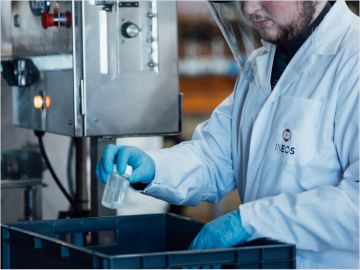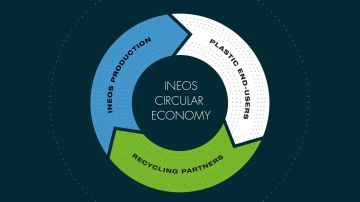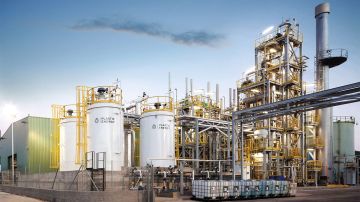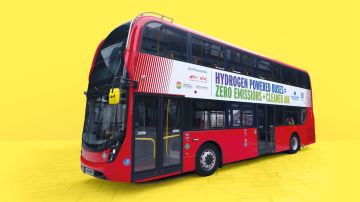INEOS is planning to make a new range of plastics out of residue from the pulp industry. It has signed a long-term agreement with a company in Finland for its biofuel, which will be used as a raw material instead of purely gas and oil to make plastic food packaging, medical supplies and pipes.
UPM Biofuels’ wood-based residue is already being used by INEOS O&P to produce raw materials for their colleagues at INOVYN, who recently unveiled the world’s first commercially available PVC, partly made with the residue that would otherwise be burned as a fuel.
This latest deal is seen as another great stride along the road to a greener economy.
“INEOS is interested in delivering a low carbon, circular economy,” said Gabriella Isidro, Business Development Manager at INEOS O&P Europe North. “The carbon footprint of our products has got huge scrutiny at the moment so we are really looking at how we can reduce our greenhouse gas emissions and have a more positive impact on the environment.”
The new range of ‘bio-attributed’ polyolefins will be produced at INEOS’ site in Köln, Germany.
And they have already received the blessing of the globally-respected Roundtable on Sustainable Biomaterials.
It has certified each step in the process, starting from UPM Biofuels converting the wood-based residue into hydrocarbons, through to the final polymer.
“INEOS has really raised the bar for the plastics industry,” said Nicola Noponen, technical advisor for The Roundtable on Sustainable Biomaterials.
“By selecting the most stringent sustainability system for their certification, they can demonstrate that their products carry high levels of sustainability, they result in greenhouse gas emissions’ reductions and displace fossil resources.”
The result are products which have a proven positive impact on the environment without sacrificing any product performance.
The other beauty of UPM’s biofuel is that it is not only renewable but it also does not compete with the food chain.
The biofuel will be shipped by barge to O&P’s plant in Köln where it will be turned into bio-ethylene in its existing cracker.
“By replacing fossil-based raw materials in the cracker, our products will be contributing to a significant reduction in carbon emissions,” said Rob Ingram, CEO INEOS O&P Europe North. UPM, which has been making products from wood at its site in Lappeenranta for more than 100 years, is excited to be working with INEOS.
“INEOS’ and our commitment to RSB certification creates a strong common ground to build on,” said Maiju Helin, Head of Sustainability and Market Development at UPM Biofuels.
As a company, it was forced to transform itself in a bold way and look for new business in 2008 as the demand for news print began to fall.
In 2012 it built the world’s first bio-refinery producing wood-based, renewable diesel and hasn’t looked back.
UPMBIOFUELS
The renewable raw material for UPM BioVerno naphtha is crude tall oil, a residue of the pulp making process.
UPM climate positive farming
Our feedstocks are cultivated within existing agricultural systems and requires no additional farmland for their cultivation. These feedstocks are introduced as an additional high biomass cover crop within an existing main crop rotation during seasons where land is not typically in productive use.
If you would like further information on this range or need discuss any matter relating to these products please contact us at: sustainability.opeurope@















